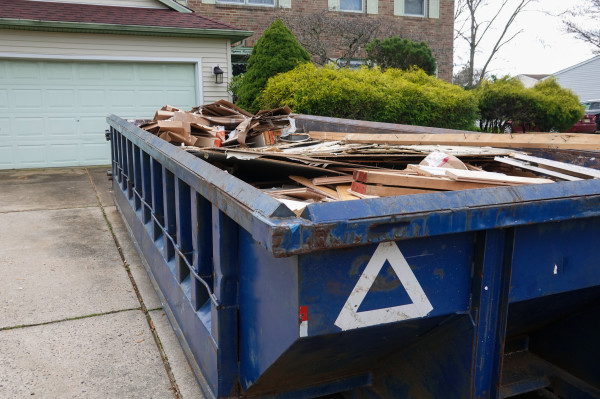10 Strategies For Managing Home Construction Waste

Regardless of scale, construction projects invariably produce a substantial volume of waste, including materials like wood, metal, concrete, and more. Effectively managing this waste transcends environmental stewardship. It’s crucial for maintaining cost efficiency and adhering to legal standards. Proper waste management ensures resources are optimally used and disposed of while aligning with fiscal prudence and regulatory mandates.
Here are several effective strategies for managing home construction waste:
Conduct Waste Assessment And Planning
Before any construction activity begins, assessing the potential types and volumes of waste that will be generated is crucial. This assessment forms the basis of a waste management plan, which should detail how different waste materials will be handled, recycled, or disposed of. Effective planning can significantly reduce the waste generated and the costs associated with its removal.
Segregate Waste Properly
Segregating waste on site is essential for effective waste management. Different types of waste like wood, metal, plastics, and concrete should be separated into different containers. This can help facilitate proper recycling and prevent the contamination of recyclable materials, making the recycling process more efficient and less costly.
Emphasise Reuse And Recycling
Maximising the reuse and recycling of construction materials can dramatically reduce the amount of waste that needs to be disposed of. Materials like wood, metal, and certain plastics can often be reused directly or recycled. Identifying local recycling facilities and understanding their requirements for waste acceptance is important.
Hire Construction Waste Removal Services

Engaging professional services for construction waste removal can significantly streamline the waste management process. These companies specialise in properly handling, sorting, and disposing of various types of construction debris. They possess the necessary equipment and expertise to ensure that waste is not only removed effectively but also processed in a way that favors recycling and reusing materials wherever possible.
By entrusting waste management to professionals, constructors can focus more on the building aspects, such as building the foundation, safe in the knowledge that the waste is being handled responsibly and sustainably.
Choose Sustainable Building Materials
Opting for sustainable building materials is pivotal in reducing construction waste and its environmental footprint. Materials that are durable and recyclable, or composed of recycled content, can significantly cut down the volume and toxicity of waste generated. Utilise these materials to promote a circular economy in the construction industry, where waste is minimised and resources are reused, leading to a more sustainable building process. For example, using recycled metal or sustainably harvested wood reduces the depletion of natural resources and lessens the energy and costs involved in producing new materials.
This eco-friendly approach sets a precedent for responsible construction practices, aligning with the global shift towards sustainability.
Handle Materials And Storage Efficiently
Efficient handling and storage of construction materials are critical in minimising waste. By safeguarding materials from environmental damage and storing them to prevent breakage or decay, waste can be significantly reduced. Additionally, meticulous inventory management can help avoid excess orders, preventing unnecessary waste. This approach conserves resources and leads to substantial cost savings, making it an essential practice in sustainable construction.
Implement Just-in-Time (JIT) Delivery
Just-in-Time (JIT) delivery is a strategic approach to reduce waste in construction. By synchronising material delivery with the precise timing of their use on-site, it minimises the risks of material damage, loss, or spoilage. This system ensures that materials don’t lie unused for long periods, reducing the likelihood of waste due to overstocking or deterioration. This can lead to a more efficient and waste-conscious construction process.
Conduct Training And Awareness For Workers
Raising awareness among construction workers is pivotal for effective waste management. Train workers on the importance of minimising waste, correctly segregating materials, and recycling practices. Their contribution is invaluable in managing site waste. This empowerment leads to more conscious handling of materials and adherence to waste management protocols, ultimately fostering a culture of sustainability and efficiency on construction sites.
Monitor For Continuous Improvement
Ongoing monitoring and evaluation of waste management strategies are crucial for continuous improvement. This involves regularly tracking the volume and types of waste generated, assessing the effectiveness of segregation, and monitoring recycling rates. By identifying areas for improvement and making necessary adjustments, construction projects can continually enhance their waste management practices, striving towards more sustainable and efficient operations.
Ensure Compliance With Regulations
Adherence to local and national waste management regulations is non-negotiable in construction. It involves properly handling, transporting, and disposing of all waste, especially hazardous materials, and ensuring processing at licensed facilities. Compliance averts legal repercussions and reinforces responsible and ethical waste management practices, contributing to environmental protection and public health.
Conclusion
Effective management of home construction waste is a multi-faceted challenge that requires careful planning, execution, and ongoing management. By employing these strategies, construction projects can minimise their environmental impact, comply with regulations, and potentially reduce costs associated with waste disposal.
